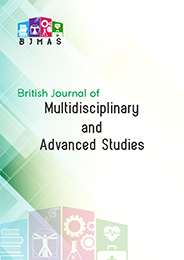Artificial Intelligence and Academic Writing: A Case Study of STEM Undergraduates
DOI:
https://doi.org/10.37745/bjmas.2022.04942Abstract
The emergence of generative artificial intelligence (AI), particularly tools such as ChatGPT, has introduced new complexities into the teaching and learning of academic writing. For students in STEM disciplines, who often regard writing as a secondary skill compared to technical expertise, AI offers unprecedented support in grammar, vocabulary, and organization. Yet, it simultaneously raises concerns related to authenticity, critical engagement, and academic honesty. This article presents findings from a mixed-methods study conducted with undergraduate STEM students enrolled in composition courses at San Diego State University Georgia. By combining textual analysis of student assignments with reflective surveys, the study identifies both opportunities and risks associated with AI-assisted writing. Results reveal improvements in surface-level accuracy, vocabulary range, and time management, counterbalanced by challenges in synthesis, overreliance on automated support, and instances of fabricated references. The study argues for a reimagined pedagogy that integrates AI not as a substitute for student thinking but as a scaffold for deeper engagement, fostering reflective practice, ethical awareness, and sustainable autonomy in writing development.












